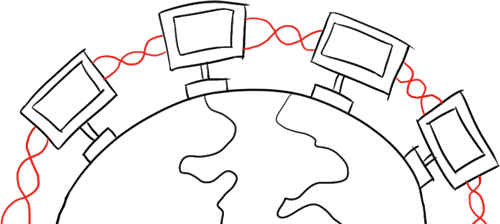Team:Heidelberg/Human Practice
From 2014.igem.org
| (44 intermediate revisions not shown) | |||
| Line 1: | Line 1: | ||
{{:Team:Heidelberg/Templates/IncludeCSS|:Team:Heidelberg/css/boxes}} | {{:Team:Heidelberg/Templates/IncludeCSS|:Team:Heidelberg/css/boxes}} | ||
| + | <html> | ||
| + | <style> | ||
| + | .subtitle { | ||
| + | color: white; | ||
| + | } | ||
| + | </style> | ||
| + | </html> | ||
{{:Team:Heidelberg/templates/wikipage_new| | {{:Team:Heidelberg/templates/wikipage_new| | ||
| - | body-style=background-color: | + | body-style=background-color:black; |
| | | | ||
| - | container-style=background-color: | + | container-style=background-color: background-color: black; background-image: url(/wiki/images/6/6a/Heidelberg_epic_background.jpg); background-repeat: no-repeat; background-size: 100% auto; |
| | | | ||
title=HUMAN PRACTICE | title=HUMAN PRACTICE | ||
| | | | ||
| - | subtitle= | + | subtitle=Involving society into synthetic biology |
| | | | ||
white=true | white=true | ||
| Line 15: | Line 22: | ||
abstract= | abstract= | ||
| | | | ||
| - | body-style=background-color: | + | body-style=background-color:black; |
| | | | ||
content= | content= | ||
<html> | <html> | ||
| - | < | + | <style> |
| - | + | #carousel-wrapper { | |
| - | + | position: absolute; | |
| - | + | width: 100%; | |
| - | + | height:100%; | |
| - | + | left: 0; | |
| + | top:0; | ||
| + | overflow:hidden; | ||
| + | } | ||
| + | |||
| + | #slider-box { | ||
| + | border: solid 4px #DE2401; | ||
| + | } | ||
| + | |||
| + | .carousel-control.right { | ||
| + | right: 0; | ||
| + | left: auto; | ||
| + | background-image: -webkit-linear-gradient(left,rgba(0,0,0,.0001) 0,rgba(0,0,0,.5) 100%); | ||
| + | background-image: -o-linear-gradient(left,rgba(0,0,0,.0001) 0,rgba(0,0,0,.5) 100%); | ||
| + | background-image: -webkit-gradient(linear,left top,right top,from(rgba(0,0,0,.0001)),to(rgba(0,0,0,.5))); | ||
| + | background-image: linear-gradient(to right,rgba(0,0,0,.0001) 0,rgba(0,0,0,.5) 100%); | ||
| + | filter: progid:DXImageTransform.Microsoft.gradient(startColorstr='#00000000', endColorstr='#80000000', GradientType=1); | ||
| + | background-repeat: repeat-x; | ||
| + | } | ||
| + | |||
| + | .carousel-control.left { | ||
| + | background-image: -webkit-linear-gradient(left,rgba(0,0,0,.5) 0,rgba(0,0,0,.0001) 100%); | ||
| + | background-image: -o-linear-gradient(left,rgba(0,0,0,.5) 0,rgba(0,0,0,.0001) 100%); | ||
| + | background-image: -webkit-gradient(linear,left top,right top,from(rgba(0,0,0,.5)),to(rgba(0,0,0,.0001))); | ||
| + | background-image: linear-gradient(to right,rgba(0,0,0,.5) 0,rgba(0,0,0,.0001) 100%); | ||
| + | filter: progid:DXImageTransform.Microsoft.gradient(startColorstr='#80000000', endColorstr='#00000000', GradientType=1); | ||
| + | background-repeat: repeat-x; | ||
| + | } | ||
| + | |||
| + | .transbox { | ||
| + | width: 100%; | ||
| + | height: 100%; | ||
| + | background-color: rgba(255,255,255,0.7); | ||
| + | padding: 10px 15px; | ||
| + | color: #333; | ||
| + | } | ||
| + | |||
| + | </style> | ||
| + | <div class="col-lg-12"> | ||
| + | <div class="col-lg-12"> | ||
| + | <div class="transbox"> | ||
| + | <p> | ||
Research and knowledge lead to responsibility for everyone of us. In Friedrich Dürrenmatt’s satiric drama “The Physicists” the main character Möbius has solved the world formula, which includes an explanation for gravity. This discovery turns out to be both blessing and curse and could decide the fate of humanity. Being aware of the impact his findings might have he chooses to spend the rest of his life in a sanatorium instead of having to bear the responsibility that comes with publication. </p><p> | Research and knowledge lead to responsibility for everyone of us. In Friedrich Dürrenmatt’s satiric drama “The Physicists” the main character Möbius has solved the world formula, which includes an explanation for gravity. This discovery turns out to be both blessing and curse and could decide the fate of humanity. Being aware of the impact his findings might have he chooses to spend the rest of his life in a sanatorium instead of having to bear the responsibility that comes with publication. </p><p> | ||
| - | Although written in 1962 the drama is still up to date as it reflects the questions of scientific ethics and humanity's ability to handle its intellectual responsibilities. | + | Although written in 1962 the drama is still up to date as it reflects the questions of scientific ethics and humanity's ability to handle its intellectual responsibilities.</p><p> |
| - | A key aspect of the work of the iGEM Team Heidelberg is therefore to increase the dialogue between science, society and industry. </p><p> | + | With ongoing advances, the introduction to consequences of scientific research to the public is becoming an increasingly important task for an iGEM team, as it should be in every scientific community. In our Human Practice work we address this problem in a comprehensive program and discuss benefits as well as dangers of Synthetic Biology. |
| - | Read about the different efforts we made in the last few months and dig deeper into our Human Practice concept, which includes also a new open source tool for the whole iGEM community. | + | The potential discoveries and applications in Synthetic Biology will have significant influences on everyday life, therefore a continuous and public dialogue on limitations and allowances is necessary.</p><p> |
| - | + | A key aspect of the work of the iGEM Team Heidelberg is therefore to increase the dialogue between science, society and industry. </p><p>Read about the different efforts we made in the last few months and dig deeper into our Human Practice concept, which includes also a new open source tool for the whole iGEM community.</p> | |
| - | + | </div> | |
</div> | </div> | ||
</div> | </div> | ||
| Line 37: | Line 85: | ||
<a href="/Team:Heidelberg/Human_Practice/igemathome" class="box cell" style="display:block;"> | <a href="/Team:Heidelberg/Human_Practice/igemathome" class="box cell" style="display:block;"> | ||
<h2>iGEM@Home</h2><img src="/wiki/images/9/9f/Heidelberg_Igemathome_bg.png" alt="iGemathome Image" style="width:40%;float:right;" /> | <h2>iGEM@Home</h2><img src="/wiki/images/9/9f/Heidelberg_Igemathome_bg.png" alt="iGemathome Image" style="width:40%;float:right;" /> | ||
| - | + | As a new tool for the iGEM community iGEM@home, a software for distributed computing, enables every student team to archieve their modeling without access to big server farms. Read more! | |
| - | + | ||
| - | + | ||
<div class="clearfix"></div> | <div class="clearfix"></div> | ||
</a> | </a> | ||
| - | <a href=" | + | <a href="/Team:Heidelberg/Human_Practice/Education" class="box cell"> |
<h3><span>Education</span></h3> | <h3><span>Education</span></h3> | ||
| - | + | We prepared an own lab course to introduce high school students into the fascinating world of synthetic biology. | |
</a> | </a> | ||
</div> | </div> | ||
<div class="boxes-table"> | <div class="boxes-table"> | ||
| - | <a href=" | + | <a href="/Team:Heidelberg/Human_Practice/Ethics" class="box cell" style="width:30%;"> |
<h3>Religion, Ethics and Synthetic Biology</h3> | <h3>Religion, Ethics and Synthetic Biology</h3> | ||
| - | + | Synthetic biology and religious beliefs, how can they go together? We arranged a public interdisciplinary theme evening to discuss the compatibility of ethical norms in society and synthetic biology research. | |
<img src="/wiki/images/1/10/Heidelberg_Religion.png"> | <img src="/wiki/images/1/10/Heidelberg_Religion.png"> | ||
</a> | </a> | ||
| - | < | + | <div id="slider-box" class="box cell" style="width:70%; position:relative;"> |
| - | + | <div id="carousel-wrapper"> | |
| + | <div style="width:100%; height:100%" id="carousel-example-generic" class="carousel slide" data-ride="carousel"> | ||
<!-- Indicators --> | <!-- Indicators --> | ||
<ol class="carousel-indicators"> | <ol class="carousel-indicators"> | ||
| Line 61: | Line 108: | ||
<li data-target="#carousel-example-generic" data-slide-to="1"></li> | <li data-target="#carousel-example-generic" data-slide-to="1"></li> | ||
<li data-target="#carousel-example-generic" data-slide-to="2"></li> | <li data-target="#carousel-example-generic" data-slide-to="2"></li> | ||
| + | <li data-target="#carousel-example-generic" data-slide-to="3"></li> | ||
| + | <li data-target="#carousel-example-generic" data-slide-to="4"></li> | ||
| + | <li data-target="#carousel-example-generic" data-slide-to="5"></li> | ||
| + | |||
</ol> | </ol> | ||
| Line 66: | Line 117: | ||
<div class="carousel-inner"> | <div class="carousel-inner"> | ||
<div class="item active"> | <div class="item active"> | ||
| - | <img src="..." alt=" | + | <img src="https://static.igem.org/mediawiki/2014/e/e0/Heidelberg_orig_IMG_3271.JPG" alt="Maxsiehtechtgutaus"> |
| - | + | ||
| - | + | ||
| - | + | ||
</div> | </div> | ||
<div class="item"> | <div class="item"> | ||
| - | <img src="..." alt="..."> | + | <img src="https://static.igem.org/mediawiki/2014/7/70/Heidelberg_orig_IMG_20140706_154645.jpg" alt="HalloJan"> |
| - | + | </div> | |
| - | + | <div class="item"> | |
| - | </div> | + | <img src="https://static.igem.org/mediawiki/2014/8/83/Heidelberg_orig_IMG_3225.JPG" alt="Maxisttoll"> |
| + | </div> | ||
| + | <div class="item"> | ||
| + | <img src="https://static.igem.org/mediawiki/2014/b/b2/Heidelberg_orig_IMG_3379.JPG" alt="MaxverstehtdieLiebenicht"> | ||
| + | </div> | ||
| + | <div class="item"> | ||
| + | <img src="https://static.igem.org/mediawiki/2014/1/12/Heidelberg_orig_IMG_3038.JPG" alt="Max?Hmmm"> | ||
| + | </div> | ||
| + | <div class="item"> | ||
| + | <img src="https://static.igem.org/mediawiki/2014/2/25/Heidelberg_orig_IMG_3432.JPG" alt="Steckdose"> | ||
</div> | </div> | ||
| - | |||
</div> | </div> | ||
| Line 88: | Line 144: | ||
</a> | </a> | ||
</div> | </div> | ||
| - | </ | + | </div> |
| + | </div> | ||
</div> | </div> | ||
<div class="boxes-table"> | <div class="boxes-table"> | ||
| - | <a href=" | + | <a href="/Team:Heidelberg/Human_Practice/Experts" class="cell box" style="width:42%;"> |
<h3><span>Experts</span></h3> | <h3><span>Experts</span></h3> | ||
To make sure our project will have an impact for both basic research and industry, we presented our project to different experts even in the developing phase. In the following short articles we talk about our experience and the feedback we got. | To make sure our project will have an impact for both basic research and industry, we presented our project to different experts even in the developing phase. In the following short articles we talk about our experience and the feedback we got. | ||
</a> | </a> | ||
| - | <a href=" | + | <a href="/Team:Heidelberg/Human_Practice/Public_Relations" class="cell box" > |
<h3><span>Public Relations</span></h3> | <h3><span>Public Relations</span></h3> | ||
We – being „generation Y“ – know how much attention you can raise using the effect of social media. For content and idea sharing we used platforms like twitter, facebook and tumblr. Read more about our Public Relations and our weekly Tumblr blog articles to inform people about basics of Synthetic Biology. | We – being „generation Y“ – know how much attention you can raise using the effect of social media. For content and idea sharing we used platforms like twitter, facebook and tumblr. Read more about our Public Relations and our weekly Tumblr blog articles to inform people about basics of Synthetic Biology. | ||
Latest revision as of 17:00, 16 October 2014
– Involving society into synthetic biology
Research and knowledge lead to responsibility for everyone of us. In Friedrich Dürrenmatt’s satiric drama “The Physicists” the main character Möbius has solved the world formula, which includes an explanation for gravity. This discovery turns out to be both blessing and curse and could decide the fate of humanity. Being aware of the impact his findings might have he chooses to spend the rest of his life in a sanatorium instead of having to bear the responsibility that comes with publication.
Although written in 1962 the drama is still up to date as it reflects the questions of scientific ethics and humanity's ability to handle its intellectual responsibilities.
With ongoing advances, the introduction to consequences of scientific research to the public is becoming an increasingly important task for an iGEM team, as it should be in every scientific community. In our Human Practice work we address this problem in a comprehensive program and discuss benefits as well as dangers of Synthetic Biology. The potential discoveries and applications in Synthetic Biology will have significant influences on everyday life, therefore a continuous and public dialogue on limitations and allowances is necessary.
A key aspect of the work of the iGEM Team Heidelberg is therefore to increase the dialogue between science, society and industry.
Read about the different efforts we made in the last few months and dig deeper into our Human Practice concept, which includes also a new open source tool for the whole iGEM community.
iGEM@Home
 As a new tool for the iGEM community iGEM@home, a software for distributed computing, enables every student team to archieve their modeling without access to big server farms. Read more!
As a new tool for the iGEM community iGEM@home, a software for distributed computing, enables every student team to archieve their modeling without access to big server farms. Read more!
 "
"







